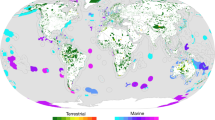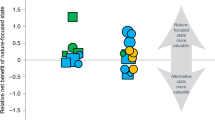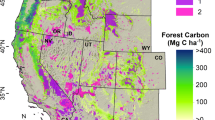Abstract
Conservation of wildlife is one form of land use that competes with agriculture, forestry, urban development and outdoor recreation for an extremely limited supply of land. Conservationists are often faced with having to make decisions of priority, and the question arises as to whether it is better to have the area allocated for conservation in one large unit or in several smaller units. The scale of these units will vary both with different habitats and with different species being conserved: thus, in the tropics the area being considered is likely to be of the order of thousands of hectares, whereas in the industrialized world the areas may be only a few hectares in extent. The problem of how best to use limited resources becomes critical both to amateur conservation organizations (whose ‘shopping lists’ for reserves are long, but whose financial resources are limited by the extent of their charitable status) and to national organizations such as, in the UK, the Nature Conservancy Council (whose ability to support management agreements under Section 15 of the 1968 Countryside Act is limited by an overall budget). The question is: should such limited resources be devoted to the conservation of a few large sites or to two or three times as many smaller sites? The following argument shows that the proportional overlap of species is the critical factor, and data indicate that a number of small reserves have more species than a single large reserve.
This is a preview of subscription content, access via your institution
Access options
Subscribe to this journal
Receive 51 print issues and online access
$199.00 per year
only $3.90 per issue
Buy this article
- Purchase on Springer Link
- Instant access to full article PDF
Prices may be subject to local taxes which are calculated during checkout
Similar content being viewed by others
References
May, R. M. Nature 254, 177–178 (1975).
Diamond, J. M. Biological Conservation 7, 129–146 (1975).
Wilson, E. O. & Willis, E. O. in Ecology and Evolution of Communities (eds Cody, M. L & Diamond, J. M.) (Belknap Press, Cambridge, Massachusetts, 1975).
Simberloff, D. S. & Abele, L. G. Science 191, 285–286 (1976); 193, 1027–1032 (1976).
Abele, L. G. & Connor, E. F. in Proc. 1st Conf. Sci. Res. in National Parks Vol. 1, 89–94 (ed. Linn, R. M.) (US Department of the Interior, Washington, DC).
Ratcliffe, D. A. A Nature Conservation Review Vol. 1 (Cambridge University Press, 1977).
Usher, M. B. Biological Management and Conservation (Chapman & Hall, 1973).
Usher, M. B. J. appl. Ecol. 16, 213–215 (1979).
Usher, M. B. Field Studies (in the press).
Diamond, J. M. & Marshall, A. G. J. Anim. Ecol. 46, 703–727 (1977).
Higgs, A. J. J. Biogeogr. (submitted).
Author information
Authors and Affiliations
Rights and permissions
About this article
Cite this article
Higgs, A., Usher, M. Should nature reserves be large or small?. Nature 285, 568–569 (1980). https://doi.org/10.1038/285568a0
Received:
Accepted:
Issue Date:
DOI: https://doi.org/10.1038/285568a0
This article is cited by
-
Zoning for management in wetland nature reserves: a case study using Wuliangsuhai Nature Reserve, China
SpringerPlus (2012)
-
Zoning a Protected Area: Proposal Based on a Multi-thematic Approach and Final Decision
Environmental Modeling & Assessment (2010)
-
Making the matrix matter: challenges in Australian grazing landscapes
Biodiversity and Conservation (2005)
-
Theoretical and practical criteria for the selection of ecosystem monitoring plots in Swiss forests
Environmental Monitoring and Assessment (1995)
-
Species area-relationships and frequency ? Floristical data analysis of 44 isolated woods in northwestern Germany
Vegetatio (1990)
Comments
By submitting a comment you agree to abide by our Terms and Community Guidelines. If you find something abusive or that does not comply with our terms or guidelines please flag it as inappropriate.



